TLDR: National leader Christopher Luxon’s relative inexperience in politics and public policy has been exposed in an area the former Air NZ CEO might have been expected to be across: public transport.
Luxon questioned the need for taxpayer subsidies for buses and trains yesterday, but also said he saw the need for ‘mode shift’ out of cars in cities, although when challenged he said he ‘hadn’t thought much about it’. Paid subscribers can see more detail and analysis below the paywall fold.

Elsewhere in the news this morning:
Russian President Vladimir Putin said peace talks with Ukraine had come to a ‘dead end,’ blaming western provocation of ‘fake news’ reports of war crimes in Bucha and saying Russia would ‘rhythmically and calmly’ continue its ‘special military operation’ in Ukraine; (Reuters)
Data out overnight showed US consumer price inflation hit an annual rate of 8.5% in March, but core inflation of 0.3% for the month was less than the 0.5% expected by economists, which prompted a rise in global stocks this morning and a fall in market interest rates (CNBC);
A Financial Services Council survey of 2,000 people in January found ‘Generation Rent’ (18-39 year olds, including 60% who rent), had been hit the hardest financially by Covid, were the least confident about the future, had the most concerns about house prices, were the most worried about wage stagnation; and a third did not have enough cash saved to last more than a month without income;
Treasury Secretary Caralee McLiesh gave a major speech yesterday highlighting what she said was a ‘growing gap in wellbeing between young and old’ (see more on that in Charts of the Day below the paywall fold); and,
Ageing cement pipes in Christchurch are leaching asbestos fibre into the city’s water supplies, but not at dangerous levels, a University of Otago study of asbestos pipes in 35 Christchurch locations has found, The Press and ODT reported this morning, adding the report’s authors said Aotearoa-NZ has 9,000kms of asbestos piping that would cost $2b to replace.
Look out later today for Covid-19 Minister Chris Hipkins announcing at 1pm whether some or all of the country will go ‘orange’ from Good Friday. We will also find out whether the Reserve Bank will hike the Official Cash Rate by 25 basis points or 50 basis points to as high as 1.5% at 2pm. I’ll include both decisions in my Dawn Chorus email sent to paid subscribers only shortly after 5pm.
An incoherence and lack of thought on public transport
Christopher Luxon’s lack of political and public policy experience was always going to trip him up at some stage, but few would have expected it on transport policy, and the issue of Government subsidies for transport, given the Government’s 51% ownership of Air NZ and the more than $1.3b in loans and subsidies it has received in the last two years alone.
The National leader was asked on his way into Parliament yesterday whether he thought the 50% discount on bus and train fares put in place for three months from April 1 should be extended. He told reporters he didn’t think these public transport services should not be continued to be propped up by taxpayers, even though he saw the need for ‘mode shift’ away from cars in cities.
Here’s the quotes below, as cited in this RNZ piece from Jane Patterson and from Thomas Couglan at NZ Herald.
"There's a need for us to continue to drive mode shift, I get it, but you've got to build good-quality public transport options that people choose to use." Christopher Luxon
He went on to say the 50% discount was helpful right now for those suffering in the cost of living crisis, but would need to be revisited.
"But ultimately, public transport needs to stand on its own feet. It can't be subsidised or underwritten ... it has to be able to build on its own case.” Luxon
It seems astonishing to me that the former CEO of Air NZ did not know or realise that Waka Kotahi-NZTA will spend at least $2.6b in the next three years on subsidising buses and trains, as a matter of bipartisan public policy for decades. That money comes from the hypothecated National Land Transport Fund, which is funded by fuel taxes and road user chargers, rather than general taxation. It is a crucial element in any Government’s plans to get to net zero by 2050, which National voted for.
"Fundamentally, it's got to stand on its own merits." Luxon
He was then reminded public transport has been heavily subsidised for decades, he said:
“I haven't thought too deeply about it too honest. I think the bottom line is, we want to encourage more mode shift.”
He referred to the $100m spent on the Te Huia commuter train between Hamilton and Auckland as a wasteful subsidy.
"When you look at some of the options, think about Te Huia, a slow train, $100m being wasted on that. It doesn't matter how much you spend on that, it's a white elephant right?" Luxon
Luxon went on to say public transport had to be attractive in its own right.
"The bigger issue is public transport has to be a compelling as a proposition so that people want to use it. There's a need for us to continue to drive mode shift, I get it, but you've got to build good quality public transport people choose to use." Luxon
As Luxon said, it is clear he not thought about the issue in depth, which is astonishing for a former CEO of a government-subsidised public transport company that committed itself to reducing climate emissions dramatically, including under his watch.
The reaction was swift
Finance Minister Grant Robertson was derisory yesterday afternoon.
"If he wants a cost of living crisis he'll get one if he doesn't subsidise public transport. Public transport more generally is important, it's good for people who are on lower incomes but it's also good for the environment in terms of climate change ... we'll be continuing to subsidise public transport." Grant Robertson
Transport Minister Michael Wood could also barely contain himself, tweeting this:


Green Transport spokeswoman Julie-Anne Genter was also critical.
In my view, this exchange should be a wakeup call for National on building a coherent transport policy that matches with its climate change commitments and its campaign about the cost of living crisis. It also begs some interesting questions about National’s view on the public subsidies (certainly in capital investment terms, if not maintenance terms) for roads and motorways that are embedded in the day-to-day lives of motorists and trucking companies.
If he is against subsidies for public transport, then surely he would be in favour of congestion charging, and proper pricing of the climate cost of motoring and farming.
A query for paid subscribers. Do you want this opened up to the public for sharing? Please comment or like below if you do so you can share it. (Update: The answer was yes so I’ve now opened it up.)
In other news in geo-politics and the global economy
Fined - UK PM Boris Johnson, his wife Carrie and his finance minister Rishi Sunak were fined overnight for breaches of Covid-19 rules during parties at 10 Downing St, which some fellow Conservative MPs said confirmed he had misled Parliament (although his resignation is now seen unlikely in the middle of the war in Ukraine).
Defaulted - Sri Lanka suspended payments on its government bonds overnight, ending its “unblemished record of external debt service since independence in 1948,” and triggering a call for a debt restructuring supervised by the IMF. Sri Lanka has US$35b of foreign debt, much of it owed to China, and faces US$7b of repayments this year, with ony $2b in foreign reserves. Sri Lanka’s rupee has fallen 37% this year, making it the worst performing currency in the world (even worse than the rouble).
Imprisoned - There were various reports overnight that Vladimir Putin had thrown his top spy chief into prison because he believed the official had leaked Russia’s invasion plans to the United States.
Lowered - The World Trade Organisation last night lowered its projections for growth in global merchandise trade this year to 3% from its previous projection of 4.7%.
Warned - China’s Premier Li Keqiang warned last night for a third time in less than a week that Covid lockdowns would hurt China’s economic growth because of disruptions to production and consumer spending. IPhone assembler Pegatron also announced the suspension of production in Shanghai and Kunshan. (SCMP via YahooFinance)
10c saved - US President Joe Biden announced overnight a waiver of environmental protection rules to save 10c per gallon off ‘gas’ prices in many states. The Environmental Protection Agency will issue an emergency waiver to allow the widespread sale of 15% ethanol blend fuel that is usually prohibited between June 1 and Sept. 15 because of smog concerns. (CNBC)
Other scoops and news of note in Aotearoa-NZ today




Charts of the day
The growing wealth gap between young and old
This chart was in a speech delivered yesterday by Treasury Secretary Caralee McLiesh.
“Housing also matters for wellbeing due to the role it plays as a stock of wealth. Since the early eighties house prices in New Zealand have increased more than five-fold, a higher rise than any other OECD country. At that time, 73% of people in their early thirties owned a home; by 2018 it was 51%.
“The result is growing wealth inequality between the young and old. Consider the difference in wealth distribution by age in 2000 compared to 2018. As you can see in Figure 10, in both cases we see a pattern where older people have more wealth. This is expected—we tend to accumulate wealth as we grow old.
“But since the turn of this century the gap between wealth of the over 65s and under 35s has more than doubled. Limitations in our wealth data make it hard to be precise, but we estimate that at least half of this gap can be attributed to the growth in house prices.” Treasury Secretary Caralee McLiesh in a speech.
World food prices hit record highs in March
The Food and Agriculture Organisation reported its food price index hit a record high in March and was up 33.6% from a year ago. The highs were in both nominal and real terms for prices measured since 1961.
Useful longer reads

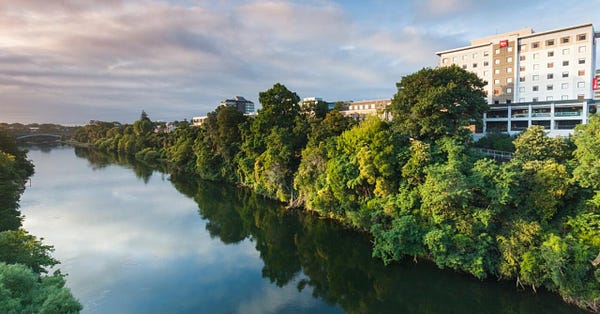
This is encouraging. The answer is Nau Mai Ra arranged a wholesale hedge arrangement in December with an unnamed player. That’s great news.


Some fun things
Have a great day
Ka kite ano
Bernard







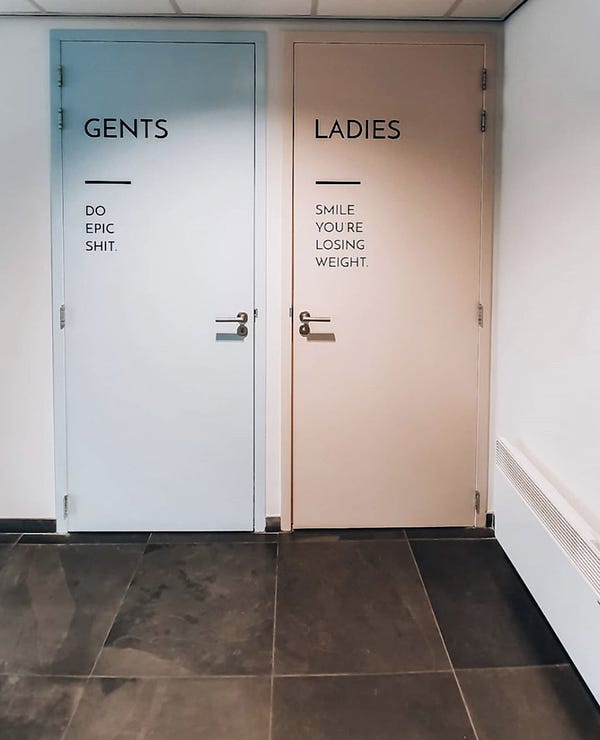


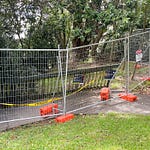

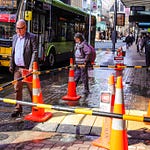


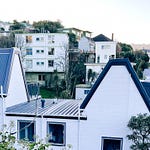



Dawn chorus: Luxon incoherent on transport